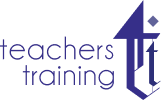Course Curriculum
| Induction Form | |||
| Induction Form | 00:00:00 | ||
| Registration Entry Form | |||
| Registration Entry Form | 00:00:00 | ||
| Guidance for Achieving the Units | |||
| Unit 1 Understanding The Principles And Practices Of Assessment Guidance For Achieving The Unit | 00:00:00 | ||
| Unit 2 Assess Occupational Competence In The Work Environment Guidance For Achieving The Unit | 00:00:00 | ||
| Unit 3 Assess Vocational Skills, Knowledge And Understanding Guidance For Achieving The Unit | 00:00:00 | ||
| Assessment Guidelines | 00:00:00 | ||
| Support Materials | |||
| Unit 01 : Understanding the Principles and Practices of Assessment | |||
| LO1: Understand the Principles and Requirements of Assessment | |||
| 1. Functions of Assessment in Learning and Development | 00:00:00 | ||
| 2. Key Concepts and Principles of Assessment | 00:00:00 | ||
| 3. Responsibilities of an Assessor | 00:00:00 | ||
| 4. Regulations and Requirements Relevant to the Assessment | 00:00:00 | ||
| LO2: Understand Different Types of Assessment Method | |||
| 1. Strengths and Limitations of Various Assessment Methods | 00:00:00 | ||
| LO3: Understand How to Plan Assessment | |||
| 1. Key Factors to Consider When Planning Assessment | 00:00:00 | ||
| 2. Benefits of Using A Holistic Approach to Assessment | 00:00:00 | ||
| 3. How to Plan A Holistic Approach to Assessment | 00:00:00 | ||
| 4. Types of Risks Involved in Assessment | 00:00:00 | ||
| 5. How to Minimise Risks Through the Planning Process | 00:00:00 | ||
| LO4: Understand How to Involve Learners and Others in Assessment | |||
| 1. Importance of Involving Learner and Others in The Assessment Process | 00:00:00 | ||
| 2. Information That Should Be Made Available to Learners and Others | 00:00:00 | ||
| 3. How to Use Peer and Self-Assessment Effectively | 00:00:00 | ||
| 4. Assessment Arrangements to Meet the Needs of Individual Learners | 00:00:00 | ||
| LO5: Understand How to Make Assessment Decisions | |||
| 1. Assessment Decisions and Judging Evidence | 00:00:00 | ||
| LO6: Understand Quality Assurance of the Assessment Process | |||
| 1. Importance of Quality Assurance in The Assessment Process | 00:00:00 | ||
| 2. Quality Assurance and Standardisation Procedures | 00:00:00 | ||
| 3. Appeals, Complaints & Disputes Procedures Concerning Assessment in Own Area of Practice | 00:00:00 | ||
| LO7: Understand How to Manage Information Relating to Assessment | |||
| 1. Importance of Following Procedures for The Management of Information Relating to Assessment | 00:00:00 | ||
| 2. How Feedback and Questioning Contribute to the Assessment Process | 00:00:00 | ||
| LO8: Understand the Legal and Good Practice Requirements in Relation to Assessment | |||
| 1. Legal Issues, Policies and Procedures Relevant to Assessment | 00:00:00 | ||
| 2. Contribution of Technology in the Assessment Process | 00:00:00 | ||
| 3. Evaluation of Requirements for Equality, Diversity | 00:00:00 | ||
| 4. Reflective Practice and Continual Professional Development | 00:00:00 | ||
| Unit 02 : Assess Occupational Competence in the Work Environment | |||
| LO1: Be Able to Plan the Assessment of Occupational Competence | |||
| 1. Assessment Planning of Occupational Competence | 00:00:00 | ||
| 2. Communicating the Process of Assessing Occupational Competence to The Learner | 00:00:00 | ||
| 3. Planning the Assessment of Occupational Competence to Address Learner Needs and Current Achievements | 00:00:00 | ||
| 4. Opportunities for Holistic Assessment | 00:00:00 | ||
| LO2: Be Able to Make Assessment Decisions About Occupational Competence | |||
| 1. Valid, Fair and Reliable Assessment Method | 00:00:00 | ||
| 2. Making Assessment Decisions of Occupational Competence | 00:00:00 | ||
| 3. Following Standardisation Procedures | 00:00:00 | ||
| 4. Providing Feedback to Learners | 00:00:00 | ||
| LO3: Be Able to Provide Required Information Following the Assessment of Occupational Competence | |||
| 1. Maintaining Records of the Related Information of the Assessment of Occupational Competence | 00:00:00 | ||
| 2. Sharing Assessment Information with Authorised Colleagues and Procedures to Maintain the Confidentiality | 00:00:00 | ||
| LO4: Be Able to Maintain Legal and Good Practice Requirements When Assessing Occupational Competence | |||
| 1. Relevant Policies, Procedures and Legislation for the Assessment of Occupational Competence | 00:00:00 | ||
| 2. Application of Requirements for Equality and Diversity and Bilingualism in Assessing Occupational Competence | 00:00:00 | ||
| 3. Evaluation of Own Work in Carrying Out Assessments | 00:00:00 | ||
| 4. Maintaining the Currency of Own Expertise and Competence | 00:00:00 | ||
| Unit 03 : Assess Vocational Skills, Knowledge and Understanding | |||
| LO1: Be Able to Prepare Assessments of Vocational Skills, Knowledge and Understanding | |||
| 1. Methods of Assessing Vocational Skills, Knowledge and Understanding to Meet Requirements and Needs | 00:00:00 | ||
| 2. Preparing Resources and Conditions for The Assessment | 00:00:00 | ||
| 3. Communicating the Purpose, Requirements and Processes of Assessment to Learners | 00:00:00 | ||
| LO2: Be Able to Carry Out Assessments of Vocational Skills, Knowledge and Understanding | |||
| 1. Assessment Management to Meet Assessment Requirements | 00:00:00 | ||
| 2. Providing Support to Learners Within Agreed Limitations | 00:00:00 | ||
| 3. Analysing Evidence of Learner Achievement | 00:00:00 | ||
| 4. Making Assessment Decisions Related to Vocational Skills, Knowledge and Understanding | 00:00:00 | ||
| 5. Standardisation Procedures | 00:00:00 | ||
| 6. Feedback on Learners’ Achievement | 00:00:00 | ||
| LO3: Be Able to Provide Required Information Following the Assessment of Vocational Skills, Knowledge and Understanding | |||
| 1. Maintaining Records of Assessment, Its Outcome and Learners Progress | 00:00:00 | ||
| 2. Making Assessment Information Available to Authorised Colleagues as Required and Maintaining Confidentiality | 00:00:00 | ||
| LO4: Be Able to Maintain Legal and Good Practice Requirements When Assessing Vocational Skills, Knowledge and Understanding | |||
| 1. Relevant Policies, Procedures and Legislation Relating to The Assessment of Vocational Skills, Knowledge and Understanding | 00:00:00 | ||
| 2. Applying Requirements for Equality and Diversity and Bilingualism | 00:00:00 | ||
| 3. Evaluation and CPD | 00:00:00 | ||
| Handouts | |||
| Equality and Diversity – Glossary of Terms | 00:00:00 | ||
| Equality and Diversity, and The Equality Act 2010 | 00:00:00 | ||
| Key Feedback Words for Use During Feedback | 00:00:00 | ||
| Table of Assessment Methods & Activities: Strengths and Limitations | 00:00:00 | ||
| Table of Assessment Types | 00:00:00 | ||
| Table of Example Assessment Records | 00:00:00 | ||
| Table of Example Assessment Requirements | 00:00:00 | ||
| Table of Objectives | 00:00:00 | ||
| Table of Potential Learner Needs and Points of Referral | 00:00:00 | ||
| Table of Resources Which Could be Used for Teaching, Learning and Assessment | 00:00:00 | ||
| Using Questions | 00:00:00 | ||
| Self-Assessment | |||
| Unit One Understanding The Principles And Practices Of Assessment – Self-Assessment Grid | 00:00:00 | ||
| Unit Two Assess Occupational Competence In The Work Environment – Self-Assessment Grid | 00:00:00 | ||
| Unit Three Assess Vocational Skills, Knowledge And Understanding – Self-Assessment Grid | 00:00:00 | ||
| Assessment Plan | |||
| Unit 1 Understanding The Principles And Practices Of Assessment Assessment Plan | 00:00:00 | ||
| Unit 2 Assess Occupational Competence In The Work Environment Assessment Plan | 00:00:00 | ||
| Unit 3 Assess Vocational Skills, Knowledge And Understanding Assessment Plan | 00:00:00 | ||
| Observation Checklist - For Assessors of The Assessment Units | |||
| OBSERV 1 | 00:00:00 | ||
| OBSERV 2 | 00:00:00 | ||
| Templates and Completed Examples | |||
| Templates | |||
| Template – Continuing Professional Development Record | 00:00:00 | ||
| Template – Personal Development Plan | 00:00:00 | ||
| Template – Reflective Learning Journal | 00:00:00 | ||
| Template – Standardisation Record for Assessed Work | 00:00:00 | ||
| Templates – A Full Set of Assessment Records | 00:00:00 | ||
| Completed Examples | |||
| Completed Example of A Continuing Professional Development Record | 00:00:00 | ||
| Completed Example of A Full Set Of Assessment Records | 00:00:00 | ||
| Completed Example of A Personal Development Plan | 00:00:00 | ||
| Completed Example of A Reflective Learning Journal | 00:00:00 | ||
| Completed Example of A Standardisation Record For Assessed Work | 00:00:00 | ||
| Submit Your Assignments – Level 3 Certificate in Assessing Vocational Achievement (RQF) | |||
| Submit Your Assignments | 00:00:00 | ||
| Resubmit Your Assignments – Level 3 Certificate in Assessing Vocational Achievement (RQF) | |||
| Resubmit Your Assignments – Level 3 Certificate in Assessing Vocational Achievement (RQF) | 00:00:00 | ||
Review








